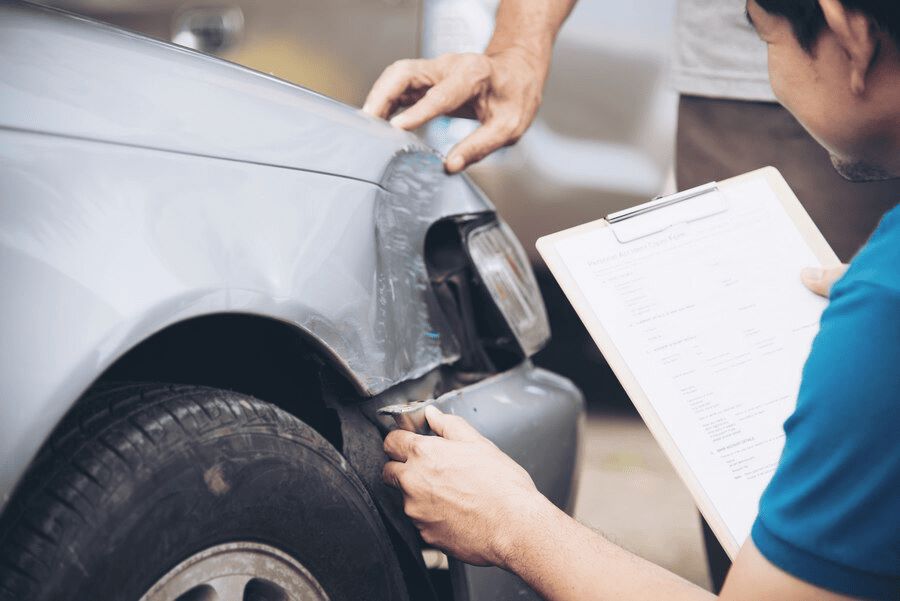
Leasing a car can be a convenient and cost-effective way to drive a newer vehicle without the long-term commitment of ownership. Lease payments are usually lower than loan payments, enabling individuals to drive a more expensive car than they could afford to buy outright. This makes leasing an attractive option for accessing higher-end vehicles without the immediate financial burden of ownership. However, when an accident occurs, the question of responsibility for repairs can add a layer of complexity to an already stressful situation.
In this article, we will delve into the legal rights of individuals dealing with a leased car accident and explore the nuances of repair responsibilities.
Understanding Lease Agreements
When you enter into a car lease, you’re essentially entering a contractual agreement with a car leasing company. The terms and conditions of this agreement, often outlined in fine print, dictate various aspects of your lease, including maintenance responsibilities and repair costs. It’s important to carefully review your lease agreement to understand the specific terms that apply to your situation.
Key Elements of Lease Agreements
Lease Period and Monthly Payments
Most lease agreements have a predetermined lease period, during which you make monthly lease payments. It’s essential to adhere to the agreed-upon payment schedule to maintain your leasing privileges.
Maintenance Costs and Responsibilities
Lease agreements often require lessees to perform routine maintenance on the vehicle. This includes regular oil changes, tire rotations, and other routine upkeep. Failure to comply with these maintenance requirements could result in additional charges at the end of the lease term.
Warranty Coverage and Repairs
Newer vehicles typically come with a manufacturer’s warranty, covering certain repairs and defects for a specific period. It’s important to understand the warranty coverage outlined in your lease agreement and how it applies to accident-related repairs.
Lease Early and Termination Fees
Leasing a car is a commitment for the agreed-upon lease period. Terminating the lease early may result in a hefty early termination fee. Understanding the financial implications of ending a lease prematurely is vital, especially when dealing with leased car accident-related repairs.
Accident-Related Repairs: Who Pays?
In the unfortunate event of a car accident, determining who is responsible for repairs on a leased vehicle depends on several factors.
Insurance Coverage
If you’re involved in an accident, your first point of contact should be your insurance provider. Most leases require lessees to carry comprehensive and collision insurance to cover damages to the vehicle. Insurance coverage plays a significant role in determining the financial responsibility for accident-related repairs.
Gap Insurance
It’s essential to check if your lease agreement includes gap insurance. Gap insurance covers the “gap” between the actual cash value of the leased vehicle and the remaining balance on the lease in the event of a total loss. This can be crucial in situations where the cost of repairs exceeds the vehicle’s value.
Roadside Assistance
Some lease agreements may include roadside assistance as part of a maintenance package. This service can be beneficial in the aftermath of an accident, providing towing and other emergency services.
Manufacturer’s Warranty
If the accident results in damage covered by the manufacturer’s warranty, the repair costs may be covered by the warranty. However, it’s essential to understand the limitations and duration of the warranty coverage.
Lease Agreement Terms
Reviewing the terms of your lease agreement is crucial in determining your responsibility for repairs. Some leases may include specific clauses related to accident damage, while others may require you to return the vehicle in good condition, subject to normal wear and tear.
Maintenance Package
Certain leases offer a maintenance package that covers routine maintenance and, in some cases, repairs. Check your lease agreement to see if you have a maintenance package and what it covers regarding accident-related repairs.
The Importance of Routine Maintenance
One factor that can significantly impact your responsibility for repairs after an accident is how well you’ve maintained the leased vehicle. Lease agreements often stipulate that the lessee is responsible for keeping the vehicle in good shape, following recommended maintenance schedules, and addressing routine wear and tear.
Routine Maintenance and Lease Returns
When it comes time to return the leased vehicle, the leasing company will assess its condition. Proper routine maintenance, such as oil changes, tire rotations, and addressing minor repairs promptly, can contribute to a smoother lease return process.
Excess Wear and Tear
Lease agreements commonly include provisions regarding excess wear and tear. While a certain level of wear is expected, excessive wear and tear may result in additional charges at the end of the lease term.
Financial Considerations: Repair Costs and Depreciation
Understanding the financial aspects of leased car repairs is crucial for making informed decisions.
Repair Costs and Deductibles
If your insurance covers the cost of repairs, you may still be responsible for deductibles. It’s essential to clarify the details of your insurance coverage and the associated costs.
Vehicle’s Depreciation
Leased vehicles depreciate over time, and the leasing company considers the vehicle’s depreciation when determining repair costs. In some cases, the lessee may be responsible for covering the gap between the depreciated value and the actual repair costs.
Low Credit Score Impact
Unresolved repair costs or insurance claims can potentially impact your credit score. It’s important to address any financial obligations promptly to avoid negative consequences on your credit history.
Exploring Options: Lease Early, Termination, and Alternatives
When faced with significant repair costs or the aftermath of a severe accident, lessees may explore various options.
Lease Early
Some lease agreements may provide options for early termination, but this often comes with substantial fees. Understanding the terms and costs associated with early termination is important before making this decision.
Negotiating with the Leasing Company
In certain situations, leasing companies may be open to negotiating repair costs or providing alternative solutions. Communication is key, and explaining the circumstances surrounding the accident can sometimes lead to more favorable outcomes.
Exploring Lease Transfer or Buyout Options
If the cost of repairs is a significant concern, exploring lease transfer options or considering a buyout at the end of the lease term may be viable alternatives. These options come with their own considerations and financial implications, so careful evaluation is necessary.
Role of Legal Counsel in Leased Car Accidents
Dealing with the aftermath of leased car accidents involves navigating a complex web of legalities, insurance policies, and contractual obligations. In such situations, the importance of seeking legal counsel cannot be overstated. Let’s delve into why having legal representation is important and how it can significantly impact the outcome of your situation.
Deciphering Complex Lease Agreements
Legal experts can unravel the intricate language of lease agreements, ensuring you understand your rights and responsibilities concerning post-accident repairs.
Negotiating with Car Leasing Companies
Experienced attorneys can negotiate on your behalf, aiming for fair resolutions and alleviating financial burdens stemming from significant repair costs.
Navigating Insurance Complexities
Legal counsel assists in understanding your insurance coverage, advocating for your entitlements, and resolving disputes with insurance companies.
Providing Legal Protection in Disputes
Attorneys act as shields, safeguarding your rights in disputes with the other party, the leasing company, or insurance providers.
Expertise in Automotive and Contract Law
Specialized knowledge in automotive law and contractual obligations equips attorneys to address unique challenges related to leased car accidents.
Guidance in Decision-Making
Legal advice helps you make informed decisions, aligning your choices with your best interests and legal rights.
Litigation Support
If disputes escalate, legal counsel ensures you’re prepared for potential litigation, building a strong case and representing you in court if needed.
Mitigating Credit Score Impact
Attorneys work to minimize the impact on your credit score, especially when dealing with unresolved financial obligations from disputes or repairs.

Consult a Practiced Car Accident Attorney at BLG
Navigating the complexities of responsibility for repairs on a leased car after an accident requires a comprehensive understanding of your lease agreement, insurance coverage, and the circumstances surrounding the incident. By being proactive in maintaining the leased vehicle, understanding the terms of your lease agreement, and exploring available options, you can make informed decisions that align with your legal rights and financial considerations.
In times of uncertainty, seeking legal guidance from professionals experienced in lease agreements and automotive law can provide invaluable assistance in ensuring that your rights are protected and that you make informed decisions regarding repairs on your leased vehicle. Remember, knowledge is your best ally in dealing with the aftermath of a leased car accident.
Facing the aftermath of a leased car accident is complex, and the guidance of a seasoned attorney is invaluable. At BLG, our experienced team specializes in automotive law, offering expert advice and staunch representation to safeguard your rights. Don’t navigate the legal intricacies alone, consult with us to ensure the best possible outcome for your situation.
Contact us for a free consultation today!





